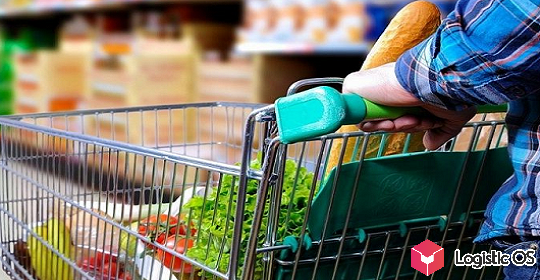Currently, there is a rapid rise in prices both on the Russian and world markets.
Experts fear that the rise in prices will continue, causing new restrictions from the government, as well as inflation.
One of the main reasons for the rise in prices is the decline in crop forecasts for the current season for almost all countries of the world, which are among the leading grain suppliers. Including — the USA, Latin America, Russia, Europe.
For example, the Sovekon agency downgraded the forecast for the harvest in the Russian Federation from 76.4 to 76.2 million tons due to drought in the south and center of the country.
Against this background, wheat prices begin to go up rapidly:
In the US, it went up 2.5% on the stock exchange over the week.
In Novorossiysk: + $ 20 / ton during the same week.
French wheat: + 5.6%.
The rise in price is also noticeable at the auctions of the United Grain Company.
From 6 to 16 August, the cost of a ton of wheat increased from 16 270 rubles per ton to 17 850.
Why are wheat prices rising?
Low crop forecast is not the only reason.
The second important factor is the increase in demand. Today traders are actively buying grain in order to fulfill their contracts, and producers are in no hurry to sell it, expecting a rise in prices.
Against this background, buyers have to increase the purchase price.
Since the 2020 coronavirus year, many states have been stockpiling grain for future use.
This leads to the fact that manufacturers are unable to meet the needs of buyers in full.
For example, this year the wheat deficit in the world market may reach 20 million tons. And in such conditions, prices will inevitably rise.
What could the rise in prices lead to?
As for the internal food security of Russia, there are hardly any reasons for concern.
According to the head of the Ministry of Agriculture of the Russian Federation Dmitry Patrushev, the harvest this year as a whole will be high: 127.4 million tons of grain, 81 million tons of wheat.
Even if problems arise in some regions, other regions will be able to compensate for this.
However, the negative consequences of rising prices can still be:
New restrictions on the part of the government, in addition to the existing quotas and duties. Most likely, the duty will grow, because today it is «floating» and is calculated from world prices.
Inflation. The cost of grain will increase the cost of bakery products, as well as meat and milk.
Even if a good grain harvest is indeed harvested in Russia, prices for it will still follow world prices.
Therefore, experts fear that the rise in prices may continue and even exceed last year’s levels.

